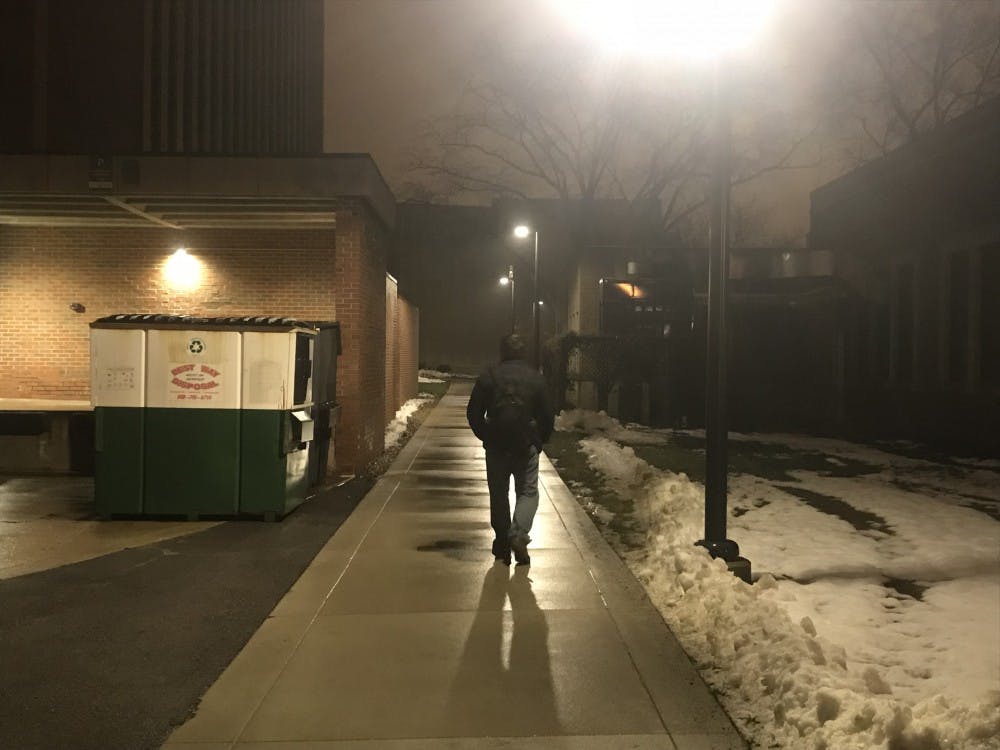Stalking, a staple of old-school fictional romantic movies, is an issue that largely pertains to college students today.
In an effort to bring attention to this subject, the Office of Victim Services (OVS) will be observing National Stalking Awareness Month (NSAM) in January.
Stalking is a pattern of behavior directed at a specific person “that would cause a reasonable person to feel fear,” according to the Stalking Prevention, Awareness and Resource Center’s (SPARC) website.
In collaboration with SPARC, stalking advocate Debbie Riddle initiated the month in July 2003, after her sister Peggy Klinke was murdered by her ex-boyfriend Jan. 18, 2003. The ex-boyfriend had relentlessly stalked Klinke after they broke up, according to SPARC’s website.
“It's important to teach these people that it is not OK to do these actions,” said Lanie Stutz, Ball State’s victim advocate.
OVS serves as a place of support and closure for those who have been victimized. It deals with cases relating to sexual assault, domestic abuse and stalking.
To commemorate the month, OVS created posters to bring attention to the romanticization of stalking within pop culture.
Stutz said stalking is not seen as an issue, and romance movies have incorporated the topic of stalking to make the idea seem entertaining.
“It minimizes the experiences of those who have experienced stalking,” said Abby Clifton, OVS graduate assistant.
A variety of behaviors are considered stalking but not seen as a criminal offenses, such as standing outside someone’s place of residence. This makes it hard for stalking cases to be acted upon, Clifton said. She said these acts are “repeated” and “unwanted.”
According to SPARC, two or more stalking incidents make a pattern. Unwanted contact from stalkers can include phone calls, texts and social media messages, unwanted gifts, property damage and threats.
Stalking is one offense that can be hard to prevent, Stutz said. She said NSAM focuses more on educating people on how to not stalk people than how to not be stalked.
Peyton Scott, junior public relations major, and Rachel Bonarek, junior organizational communications major, both said they have had experiences with stalking.
“I don’t think that it is talked about enough,” Scott said. “You need to stress the importance of it.”
According to Violence Prevention and Action Center’s website, persons 18-24 years old experience the highest rate of stalking.
“It's the close proximity of college campuses. It can actually make [stalking] substantially easier,” Stutz said.
According to Ball State’s 2018 campus security report, reports of stalking from the main campus area have more than doubled from 2016 to 2017.
To prevent someone from being a victim of stalking, OVS offers confidential resources and a stalking information packet to help appropriately assess the situation, according to its website.
SPARC also has several resources available on its website, including phone lines and tips.
“The earlier you notice it, the better it is to report it,” Stutz said.
OVS will partner with Woodworth complex Jan. 30, to hold a music bingo event where participants will reflect on stalking innuendos in popular music, Clifton said.
“Awareness is more than just hearing about it,” Bonarek said. “It’s about actually understanding the important issues.”
Contact Chase Martin with comments at cgmartin@bsu.edu.





